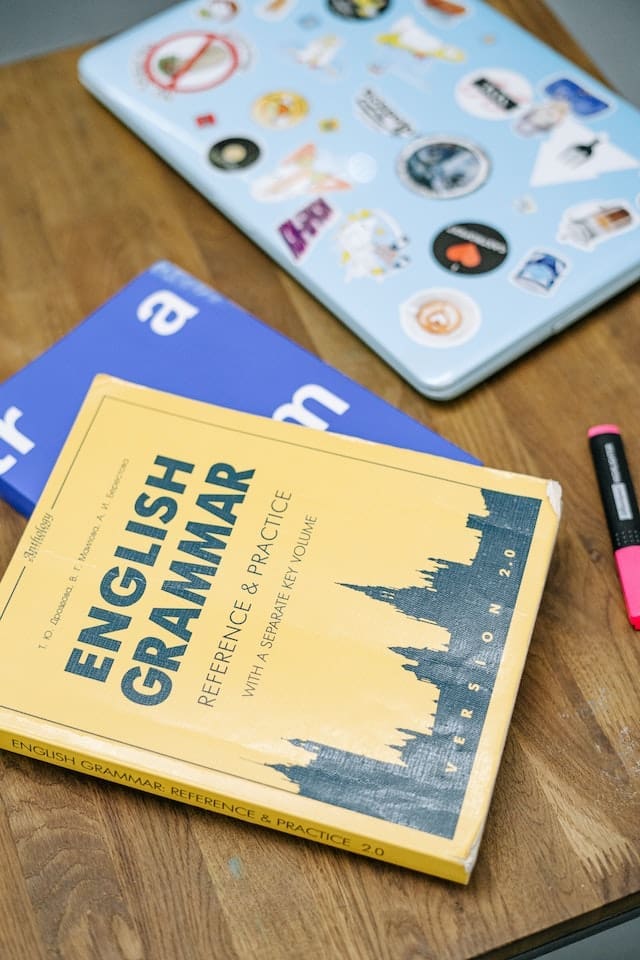In all world languages, words are divided into several categories, each of which has special grammar rules. To describe the differences between them, it was agreed to divide them into parts of speech.
In this article, we will learn about a very important section of the parts of speech: the verb. The verb is usually used to describe what a person is doing and what is happening around us.
It has a specific location in the sentence controlled by the grammatical arrangement of words, and one of the features of the verb is that it is conjugated in a certain way and with special suffixes.
Where the verb takes different forms depends on the verb tense. In the English language, there are three forms of the verb: Present, Past, and Past Participle. You can learn more about English grammar through the online learning platform “AmazingTalker.”
The verb occupies the second place in importance after the noun in English, as they are the two main components of the sentence. The importance of the verb is that it carries the time of the sentence. Verbs in English are divided into:
Auxiliary Verbs
These verbs are called Auxiliary Verbs because they help form verb forms in different tenses. Auxiliary verbs are the verb to be, the verb to have, and the verb to do.
These verbs have different conjugations with pronouns in the present and past tense, as well as they, can be used as an auxiliary verb most of the time and an essential verb at other times.
- Verb to be
In the present tense:
- “Am” is used with the Pronoun “I.”
- “Are” is used with the Pronouns “you, we, they.”
- “Is” is used with the Pronouns “ he, she, it.”
In the past tense:
- “Was” is used with the Pronouns “He, She, I, It, This.”
- And “Were” is used with the Pronouns “We, You, They.”
(Verb to be) has different uses:
- “Verb to Be’ is used as a main verb:
-
- “Jasmine is pretty.”
- “There was a strange man at the door.”
- “The weather is very hot.”
- “It was cold and windy yesterday.”
- ‘Verb to Be’ is used as an auxiliary verb. For Examples:
-
- “They are waiting for the train.”
- “They were waiting for the train.”
- “He is punished by his father.”
- “They are about to start the play.”
- Verb to have
In the present tense:
- “Have” is used with the pronouns “I, You, We, They.”
- “Has” is used with the pronouns “He, She, It.”
In the past tense:
- “Had” is used with all pronouns.
(verb to have) has different uses:
- It is used as a main verb. Examples:
- “We have a house.”
- “I have lunch at two o’clock.”
- It is used as an auxiliary verb. Examples:
- “He has lived in America.”
- “After he had entered the house, the phone rang.”
- “We had our house painted.”
- Verb to do
In the present tense:
- “Do” is used with the pronouns “They, We, You, I.”
- And “Does” is used with the pronouns “It, He, She”
In the past tense:
- “Did” is used with all pronouns.
(verb to do) has different uses:
- It is used as a main verb. Examples:
- “She did her homework yesterday.”
- “I do my work professionally.”
- It is used as an auxiliary verb. Examples:
- “He does not go to school.”
- “Do you speak French?”
- “Do help me, please.”
Modal Verbs
Modal verbs are called do because each verb of this group has a present tense only, and none of them has a past or a third conjugation of the verb, as other verbs in English. These verbs are verbs that are used as auxiliary verbs to give another meaning to the sentence, and they do not change in their form. They are:
“Shall, should, will, would, may, can, could, might, must, ought to).
Examples:
- “I shall visit you tomorrow.”
- “He will leave his work.”
- “You look tired. You should see a doctor.”
- “They told me that they would arrive on time.”
- “Jack may be at home now.”
- “We might go to France this winter.”
- “We can repair the car.”
- “I could not understand your words.”
- “She ought to take care of her kids.”
- “They must prepare for the meeting.”
Main Verbs
Main verbs are verbs that can make a complete sentence on their own. They can be conjugated. Examples:
- “I eat an apple.”
- “He works every day.”
- “They played in the garden yesterday.”
- “I have read the book.”
Verbs describe what the subject (noun or pronoun) of the sentence does. In addition to describing a physical act, verbs can also describe a concept, state of mind, or state of being. Some typical action verbs include running, dancing, jumping, singing, writing, reading, etc. Some typical text verbs include be, belief, hate, have, know, like, think, and so on.
Featured Photo by Ivan Samkov: https://www.pexels.com/




